- Home
- Mack Maloney
Strike Force Delta Page 14
Strike Force Delta Read online
Page 14
The two guards finally stopped Harbosi and ordered him to raise his hands. But he had no hands to raise. They’d been cut off. Then the man opened his mouth to speak, but no words came. His tongue has been cut out as well.
All he had was the bag, and a note, written in ink on his chest, that read: Take Me to the Chief.
The guards knew where to find him.
The Chief lived in a palatial apartment on the bottom floor of one of the Holy Towers. Located in the city’s center, this was where most of Khrash’s privileged officials lived, especially higher-ups in the religious police. At 11 stories each, the two towers were among the tallest buildings in the city, and that included the trio of minarets.
Carrying Harbosi in the back of their pickup truck, the two guards pulled up to the Chief’s door and knocked for five long minutes before they heard some kind of movement inside. The door finally opened and a teenage boy stumbled out onto the street. He looked almost as bad as Harbosi. Beaten up, bloody, certainly dazed. The guards simply pushed him on his way—they knew of the Chief’s sexual peccadilloes. They all had them. This was not the reason they were here to see him.
The Chief himself came to the door. He was in his fifties, a large, terrifying man with a bald head and scars running along both cheeks. Nobody really knew where the Chief came from. He wasn’t too sure himself. There were some indications, though, that he was from Chechnya, the Muslim republic in Central Asia that was once part of the old Soviet Union.
That made him tougher than even the toughest Afghanis. In addition to being the most powerful man in Khrash, he was also widely known as a sadist. And at the moment, he was furious with the two guards for interrupting his tryst. Even a glance at the bleeding Harbosi in the back of the truck didn’t dispel his anger.
“What is he doing here, like this?” the Chief demanded of the guards. “I sent him out looking for videotapes hours ago.”
The Chief was big enough to beat both guards to death at the same time. They were trembling as he took two giant steps out into the alley.
“Your kardiss is near death,” one told him. “And he says he has very important information for you before he leaves us. That is the only reason we brought him here like this.”
This got some of the Chief’s attention. He walked to the back of the truck and yanked Harbosi out onto the pavement. Then the Chief looked down at his flunky. The massive blood loss was something the Chief had seen before. He, too, had been a commander in the Taliban army before the Americans arrived.
“This man can no longer speak,” the Chief said. “And he has no hands, so he can’t write, either. How am I going to get this ‘important information’ from him?”
That’s when the guards retrieved the bloody bag.
“Are those videotapes?” the Chief asked them.
Neither guard replied. Instead they just handed the bag to him, jumped back into the truck, and drove away.
The Chief climbed the stairs eleven stories up to the top floor of the Holy Tower.
He did it in two minutes, an accomplishment for a man of his size. But he was in a bit of a hurry. And not for a good reason.
Once on the top floor, he knocked on the only door up there. It led to a large apartment that many called the Penthouse, though such a thing didn’t really exist in Khrash. The door opened and the Chief was looking in at a man who was nearly double his own substantial girth. This was Saheeb the Syrian, one of Al Qaeda’s chief bodyguards. He was someone the Chief disliked greatly. Saheeb looked recently awakened.
“I have to see him,” the Chief told him directly.
“He’s asleep,” the bodyguard growled. He started to close the door.
The Chief couldn’t waste time. He pulled his handgun out and placed it against Saheeb’s temple.
“I said I have to see him,” the Chief repeated. “Now.”
The bodyguard relented. The Chief pushed past him and into the dark and filthy living room. There was a bedroom off to one side; the sound of loud snoring was coming from it. The chief went toward it.
The bedroom was just as disgusting as the rest of the apartment. Here he found another large man asleep on a bed of very matted straw; it was obvious that Saheeb had been lying next to him just seconds before. The Chief lit a candle and gave the sleeping man a shake. The figure barely stirred but then fluttered his eyelids. The Chief winced. The man on the mat had only one good eye. The other was an empty, bloody socket.
It was Jabal Ben-Wabi. The infamous Al Qaeda hatchet man better known as the Patch.
Still half-asleep, Ben-Wabi’s first conscious act was to pull his patch back on from the top of his bald head. Then he looked up at the police chief.
“Why are you here? Why are you disturbing me like this?”
“One of my kardisses just stumbled back to the city, beaten and bloody,” the Chief reported. “I had sent him out to the fringes looking for videotapes—as you had asked.”
Jabal’s one good eye opened wider. “And he found some for me?” Getting a videotape was very important to him.
The Chief shook his head. “No—but he did come upon some very disturbing news.”
Jabal finally sat up. “Other than we are still without videotapes, what disturbing news could he possibly have??”
The Chief handed Jabal the bloody bag Harbosi had been carrying around his neck.
Jabal blindly reached inside. He came out with Harbosi’s two bloody hands, hacked off but still tied together with cord. Jabal turned white. There was something still clutched in the cold, dead fingers. It was a badge, taken off the shoulder of a uniform. It showed a drawing of the Twin Towers of New York City, with the letters NYPD and FDNY floating nearby and an American flag in the background. Beneath were the words We Will Never Forget.
Jabal dropped the pair of bloody hands to the floor.
“Praise Allah!” he cried. “The Crazy Americans . . . they are here?”
“That’s the message,” the Chief replied. “And this is the proof. They let him live only so he could bring these to you.”
Jabal looked about to faint. The Chief studied him. He knew Jabal to be one of the most ruthless men in the jihad movement. He’d personally seen Jabal behead women and children—and certainly more than a dozen hostages captured by Muslim terrorists in Iraq. Jabal had had no qualms about chopping . . . chopping . . . chopping away at some struggling, screaming victim’s neck and dealing with all the gore something like that entailed. But now, at the mere mention of the Crazy Americans, for the first time the Chief actually saw Jabal look frightened.
Saheeb the Syrian now spoke. He addressed Jabal directly.
“My sheikh,” he began. “There is no real reason for concern. Even if these unbalanced Americans are in the area, we know their numbers are few. We have never heard of them being more than a few dozen people. On the other hand, we have a whole city here, filled with loyal mujahideens. These crackpots might be able to do their magic tricks when they catch one of our unfortunate brothers out on his own. But we are strong here together. They have little chance of hurting us.”
But the Patch wasn’t buying it. Having the Crazy Americans on his trail was his worst nightmare come true.
“You don’t know them,” he spewed back at the bodyguard. “They can do things others cannot. They’re demons. Even their own people call them Ghosts.”
Saheeb frowned. It was his job to not only protect the Patch but also provide all of his comforts, including calming him down when needed. He said: “Again, my sheikh, this is probably just a bluff, by the CIA, because, well . . . you know. It was a long shot by them, a wild guess that at best this message would get to you. These Ghosts probably don’t even know we are here . . . .”
No sooner were these words out of Saheeb’s mouth when the entire apartment building began to shake. A deep rumbling suddenly filled the room, getting louder by the second.
“What is this?” Jabal cried out.
In the next second, a huge airplane roared by the apartm
ent window. It just missed hitting the building it self, not 10 feet away from its wingtip. It was moving incredibly fast.
Jabal and Saheeb hit the floor. Only the Chief remained upright. He was able to catch a fleeting glimpse of the aircraft as it went by. It was the craziest-looking airplane he’d ever seen. And the noise was incredible. The apartment house was literally trembling in its wake.
“See?” Jabal screamed at Saheeb from the floor. “They are right on top of us!”
The Syrian pulled Jabal to his feet and in an instant both were out of the Penthouse and running down the stairs, hell-bent on getting out of the concrete structure before it came down around them. The Chief followed, but not so much in a panic.
All three reached the street at the same time. They found many of their jihad associates already out here, some having been disturbed in the middle of perverted activities. They were scrambling around, looking up at the sky, trying to follow the trail of exhaust left by the big airplane as it buzzed the city.
“They were taking pictures of us!” someone screamed, his voice almost lost in the growing chaos. “I could see the cameras!”
More people were pouring into the street now and many had weapons with them. Religious policemen and Taliban types, they started firing into the air, only adding to the confusion. The chief screamed at them to stop, but they couldn’t hear him over their own gunfire.
That’s when things started rumbling again.
Amid the gunfire and the growing racket, someone else screamed: “Praise Allah! It’s coming back!”
An instant later, the huge airplane roared over once again, this time even lower and trailing even more of an earsplitting noise behind it. Everyone got to see it for a few seconds this time. It was big and black and had lots of strange things growing out of it. It resembled a cargotype plane that the Americans in the eastern part of the country always flew, but that bore just a passing resemblance to this thing.
And yes, they all saw the cameras this time. Not only a huge lens in a bubble located on the belly of the aircraft—next to a big white ball—but also people in black uniforms were seen aboard the aircraft, hanging out open windows, taking pictures with hand cameras.
The Chief started screaming at his men again—this time to resume shooting at the airplane. But it was already too late. The plane was gone, heading back from where it came, the mountains to the north, the rumbling fading like distant thunder.
Suddenly everything was quiet again. Many people were just standing around, dazed or in shock. Nothing like this had ever happened in Khrash before. They were protected here. Or at least they thought they were. But it had transpired so quickly, so unexpectedly, it had scared them. Wailing could soon be heard coming from nearby homes.
The Patch finally lost it. He collapsed to the ground, hitting the dirty pavement like a ton of bricks. He had fainted dead away.
It took both the Chief and Saheeb the Syrian more than a minute to bring the Patch back around, slapping his face and pushing on his big stomach to make him breathe.
When Jabal finally woke up, his face had completely drained of color.
“Allah, have mercy on my soul,” he gasped. “The Crazy Americans . . . they are coming to get me . . ..”
Chapter 13
10 minutes later
Forty miles away
The helicopter landed almost silently. The only hint of its arrival was the small maelstrom of snow and dirt its rotors kicked up as it touched down. This was quickly blown away by the high winds sweeping over the top of the huge mountain. So, too, was the noise of the engines carried away by the gale.
This was Mount Zabul. It was nearly three miles high, covered with snow, and located about twenty-five miles northeast of Obo Field and some forty miles from Khrash.
It was still dark up here, as the mountain was so high and they had landed on the western face, away from the sun. There was a village up here whose inhabitants were not ruled by a subwarlord under the thumb of Kundez Sharif. These people were also known as the Zabul. Mountain dwellers who eked out a living three miles high, eating pinecones and mountain goats, they had a long history of fierce independence.
They’d fought the Russians with as much verve as they’d fought their decades-old civil war with the authorities in Kabul. Their oral history was replete with stories of both great bravery and cold cowardice. Most of the other parties in the area, from government troops, to the Americans, to the forces of the warlord Sharif, pretty much left the Zabul, known as much for their irascibility as for their nationalistic pride, alone.
The two people in the helicopter waited for the engines to wind down and then stepped out into the wind and snow. One was Major Fox of the DSA contingent of the Ghost Team. The other was Ryder.
They were here on Murphy’s advice, hoping to make some friends. That’s why there were virtually unarmed.
Adjusting their night-vision goggles, they moved very carefully toward the snowbound village about one hundred yards away. Fox was carrying a hand-drawn map detailing each stone hut within the settlement. There were no armed men or guards watching over the village this windy night. The Zabul lived so far up in the clouds, sentries just weren’t necessary.
Ryder and Fox found the stone hut specified on the map. It seemed larger than the rest, was circular, not rectangular, maybe 15 feet around. Fox checked its dimensions against the drawing, then handed it to Ryder. He did the same thing and whispered: “This must be the place.”
They went in the back door, which was actually a series of thick leather hides hanging in place. There was a single candle burning within. Once their NVG vision adapted to the very low light, they found a figure sleeping inside, huddled under wool blankets near a stillsmoldering wood stove.
Fox looked at Ryder, who just shrugged in reply.
“Be my guest,” Ryder told him.
Fox moved over to the sleeping figure, unstrapped his .45 automatic, and very slowly put its barrel up against the person’s head. Then Fox shook him awake.
It was a little old man—but when he woke up and saw the pistol barrel he started fighting furiously with Fox. Luckily the DSA officer had managed to put his hand over the man’s mouth, so he could not cry out. But he gave Fox such a battle, Ryder had to come over and help keep the man down.
Then Fox started whispering urgently in the old man’s ear: “Murphy . . . Murphy . . . Murphy. We’re friends of Bobby Murphy. ”
Eventually the old man stopped fighting. Still they let a full minute go by before Fox took his hand from the old man’s mouth. Finally they let him stand up and brushed him off.
He was no more than five feet tall, with a brown, leathery face, a shock of white hair, and a long white beard. He was stooped over but able to stand without a cane. He was covered by a garment that looked more like a house curtain than a robe; his hands and face were dirty. Yet there was something regal about him.
His name was Tarik Aboo. He was the eldest elder of the Zabul tribe. Why did the Ghosts care about him? A couple hundred strong, the Zabul were just as religious as the people who controlled the Qimruz. But the Zabul also believed Sharif and the people in Khrash to be heathens, a disgrace in the eyes of Allah. Because there was a well-known adage in the Islamic world—my enemy’s enemy is my friend—the Ghosts were here looking for help.
After his rude awakening, Tarik agreed to talk, only because they’d spoken the magic words: Bobby Murphy.
They all sat down next to the wood stove. Tarik crossed his legs, pulling his garment tight around him. He lit up a long black cigarette to calm his nerves.
“Bobby Murphy is an old friend of mine,” he began in thick English. “He is also friends to my brother and my cousin and my cousin’s cousin. When we fought the Russians many years ago, I felt Bobby Murphy was here with us, pulling his trigger as I pulled mine. He arranged for us to get weapons. Rockets, missiles, bombs. He got us medicine and food. He helped us throw the Russians out. We owe him many favors. That is the only reaso
n I don’t kill you both right now.”
Fox and Ryder rolled their eyes. The old guy was feisty; they gave him that.
He took another long drag of his cigarette. “So, then,” he began again, “I recognize the emblem on your shoulder. I know you are the infamous Ghosts and what you have done in your fight against the sheikh bin Laden. But why are you here? We are very far away from any battlefields these days.”
“We are after a man named Jabal Ben-Wabi,” Fox explained. “He’s a high-up Al Qaeda operative. We believe he’s living in Khrash.”
Tarik almost went pale. “The Patch? You’re here to capture him?”
Fox just shook his head. “Nope—we’re here to kill him.”
Tarik just stared back at them. These men were talking nonsense. “But, as you say yourselves, the Patch is in Khrash. And Khrash is a fortress, with many weapons and people with guns everywhere. Fifteen thousand of them at least. How do you intend to get him?”
Fox glanced at Ryder, who just shrugged. “We’re still working on that,” he replied.
The old man still didn’t understand. “Are you saying you are the vanguard of some great army? Are there a million more of you just over the hill?”
“No,” Fox replied. “There’s only a few of us.”
Tarik looked like he didn’t know whether to laugh or cry. He chose to laugh. “So what they say is true,” he cackled. “You Americans are crazy. Catching the Patch with ‘only a few’ of you? Forget it. Didn’t you hear me? There are thousands of armed people in Khrash. And they are all demons who will protect the Patch no matter what. They are loyal—it will be impossible for you to bribe anyone in the city to help you. And if you fly your helicopters in, they’ll point those thousands of weapons up into the sky. Just like the day you tried to snatch Aidid.
“No, the Patch is not only hiding; he’s hiding in the right place. You must know the U.S. military won’t even bomb Khrash. They won’t send troops in because it would only mean a huge fight and they don’t want it spilling over into Iran. The swine behind the walls of that city are in a very powerful position. They hold all the cards, as you say.”

 Strike Force Bravo s-2
Strike Force Bravo s-2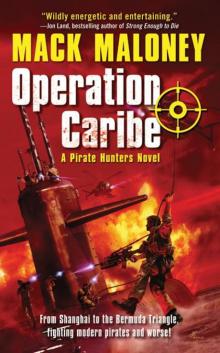 Operation Caribe ph-2
Operation Caribe ph-2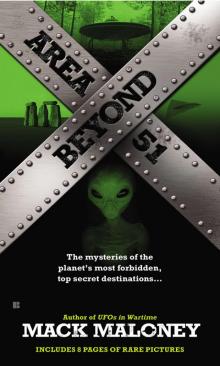 Beyond Area 51
Beyond Area 51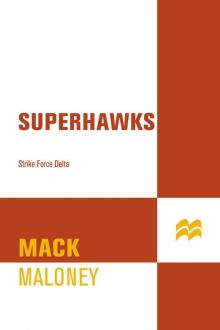 Strike Force Delta
Strike Force Delta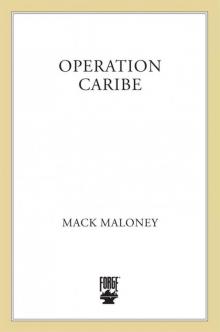 B00447820A EBOK
B00447820A EBOK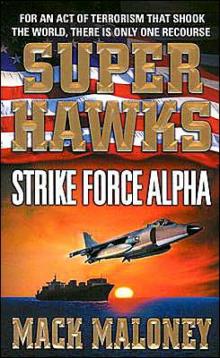 Strike Force Alpha
Strike Force Alpha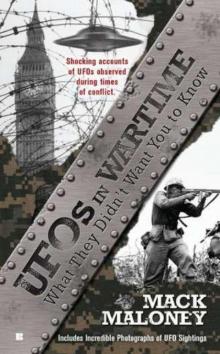 UFOs in Wartime: What They Didn't Want You To Know
UFOs in Wartime: What They Didn't Want You To Know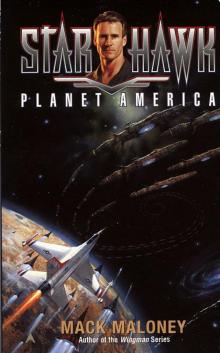 Planet America s-2
Planet America s-2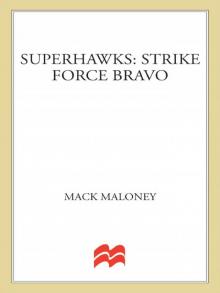 Strike Force Bravo
Strike Force Bravo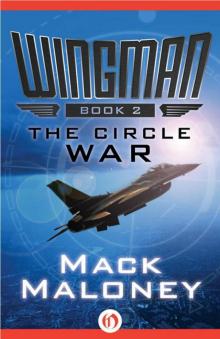 The Circle War w-2
The Circle War w-2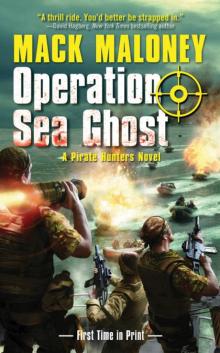 Operation Sea Ghost ph-3
Operation Sea Ghost ph-3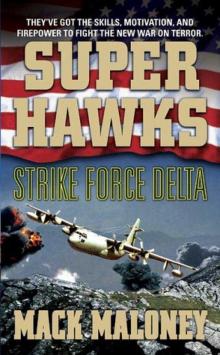 Strike Force Delta s-4
Strike Force Delta s-4 The Wingman Adventures Volume One
The Wingman Adventures Volume One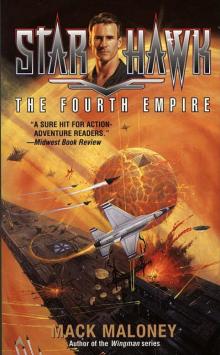 The Fourth Empire s-3
The Fourth Empire s-3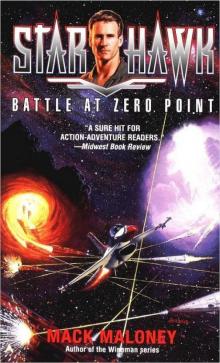 Battle at Zero Point s-4
Battle at Zero Point s-4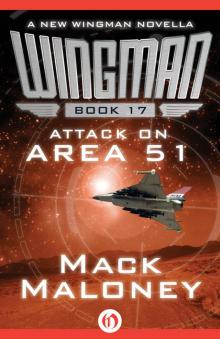 Attack on Area 51
Attack on Area 51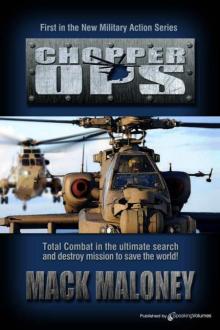 Chopper Ops
Chopper Ops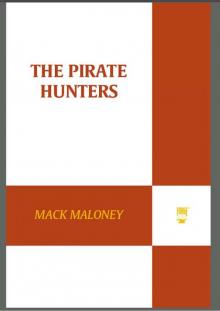 B003IKHEWG EBOK
B003IKHEWG EBOK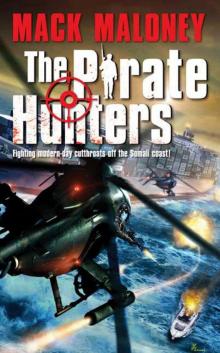 The Pirate Hunters ph-1
The Pirate Hunters ph-1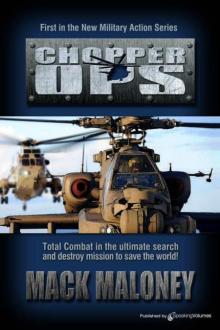 Chopper Ops co-1
Chopper Ops co-1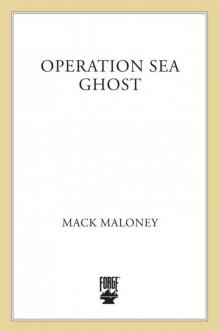 B005J4EW5G EBOK
B005J4EW5G EBOK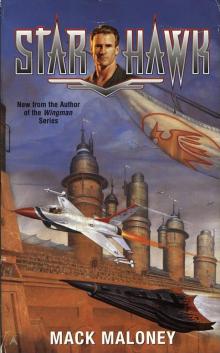 Starhawk s-1
Starhawk s-1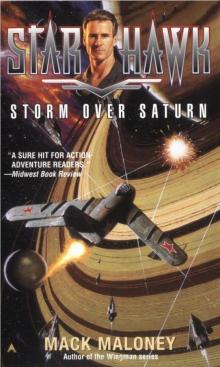 Storm Over Saturn s-5
Storm Over Saturn s-5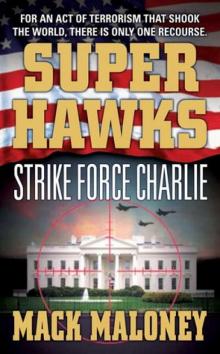 Strike Force Charlie s-3
Strike Force Charlie s-3